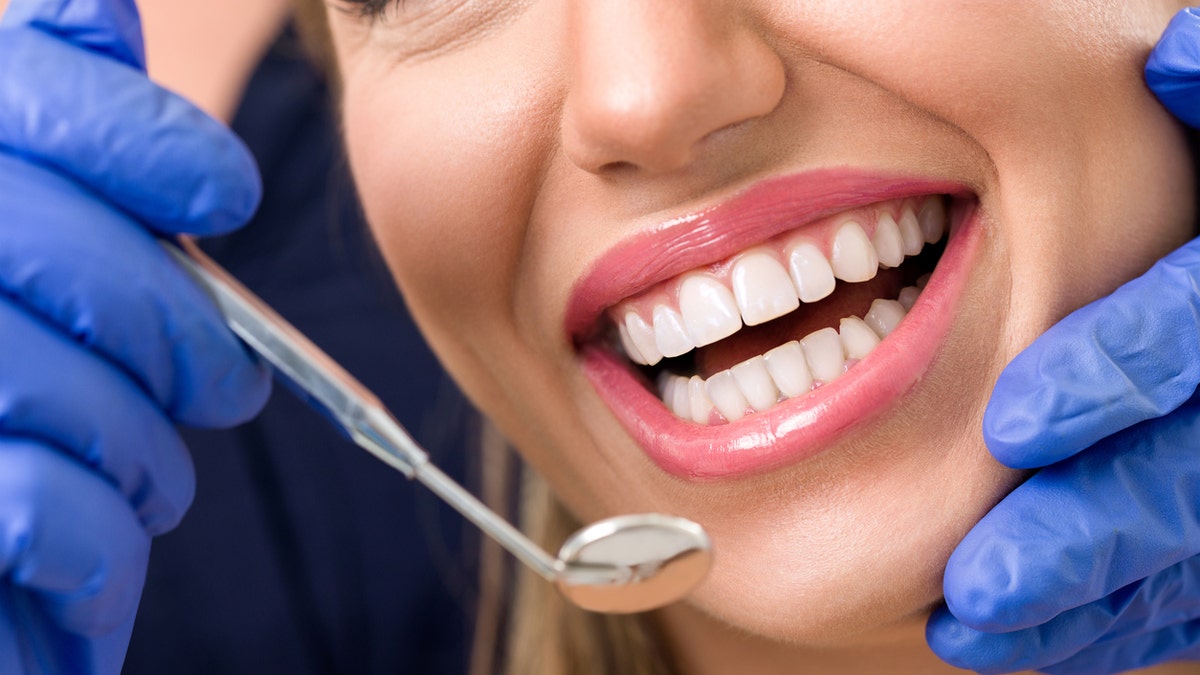
Smiling woman at dentist during oral inspection (iStock)
When it comes to visiting the dentist, how do you know when enough is enough? Do you really need that filling replaced? What about that new treatment to prevent cavities?
Of course, every patient is different, and so it’s hard to say which treatments may or may not be strictly necessary. “Care is very individualized these days,” Dr. Matthew Messina, a spokesman for the American Dental Association (ADA) and a dentist based in Cleveland, Ohio, told Fox News.
However, there are some ways you can figure out which treatments you want to take on, and which you can put off or leave behind. Fox News asked Dr. Ada Cooper, a spokeswoman for the ADA and a dentist based in New York, NY, and Dr. Messina for their tips:
1. Ask the right questions.
To figure out what treatments are right for you, make sure to ask your dentist the right questions about your treatment upfront. Messina said these include: 1) What is my current situation (on the status of decay, gum disease, etc.) 2) What are the goals of treatment and 3) What are the steps to get there?
“If something is recommended to you, ask a follow up question and find out why you need a certain treatment,” Messina advised.
THIS IS HOW OFTEN YOU SHOULD PEE EVERY DAY
2. Know the difference between MUST do, SHOULD do, and COULD do.
Similarly, there are some treatments that you should absolutely schedule immediately and others that could wait. Things that fall into the must-do category include decay, swelling, and infection, Messina said. Treatments in the should-do category, on the other hand, include things like failing restorations that could cause a problem in the near future. And the could-do category? Those include treatments that might make the mouth more aesthetic or improve one’s smile, Messina explained.
3. Look for a dentist with similar values.
Make sure to express to your dentist what your goals are, whether that’s simply eliminating pain and decay, or preventing future problems, Messina advised. That way, you can come up with a treatment plan together.
FOLLOW US ON FACEBOOK FOR MORE FOX LIFESTYLE NEWS
4. Remember that dental care is a two-way dialogue.
Ultimately, dental care is a two-way relationship, Cooper stressed. Don’t be afraid to ask questions, seek more information, and communicate your priorities and concerns to your dentist, she said.








































